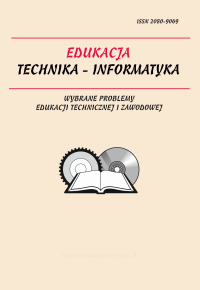Everyday Life Experience: an Aid or an Obstacle? An Eye-tracking Analysis of the Answers to a Science Problem
Keywords:
didactics, eye-tracking, science problem solving, epistemological obstacles, everyday life experienceAbstract
The paper presents a further analyses of the research results described in the article Differences in Solving Physics Problems by the Beginners and Experts(Wcisło, Błasiak et alt., here). It also focuses on differences among experts and non-experts in answers to the same science multiply problem with the only one correct answer. Using the same eye-tracking technology but alternative approach to the data analysis we try to find out the reasons of choosing wrong answers by the majority of study participants. We pose the question: Is the everyday life experience an aid or an obstacle to solve a science problem? The research results seem to provide the answer. The crux of solving that kind of problems successfully are: discipline of thinking, overcoming epistemological obstacles connected with understanding the notion of function and the proper usage of the everyday life experience and school knowledge.Downloads
Published
2014-12-30
How to Cite
SAJKA, M., & ROSIEK, R. (2014). Everyday Life Experience: an Aid or an Obstacle? An Eye-tracking Analysis of the Answers to a Science Problem. Journal of Education, Technology and Computer Science, 10(2), 375–383. Retrieved from https://journals.ur.edu.pl/jetacomps/article/view/6621
Issue
Section
ICT IN EDUCATIONAL RESEARCH
License
Copyright (c) 2014 Journal of Education, Technology and Computer Science

This work is licensed under a Creative Commons Attribution-ShareAlike 4.0 International License.

